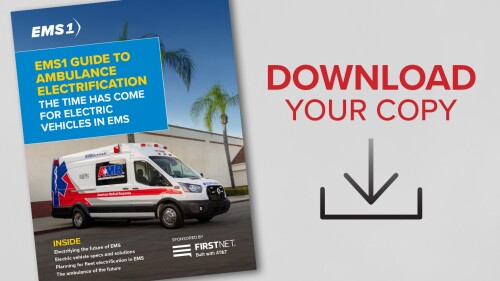Every EMS incident starts with a scene size-up to seek out risks and hazards. Throughout the response, all responders should be asking, “Is the scene safe?” Since the scene is rarely safe, we take reasonable precautions to mitigate risks to ourselves, bystanders and the patient.
The scene – our planet – is not safe. The water is rising, the winds are blowing harder, rain and snowstorms are more severe, record high and record low temperatures are more frequent and, overall, the planet is warming.
Is climate change impacting EMS?
As part of the 2020 EMS Trend Report, respondents were asked “How much of an impact do you feel climate change is having on the profession?” Only 3% of nearly 3,000 respondents described climate change as a “Major Issue” while 58% said climate change is of “No Significance” to EMS.
The impact of climate change, much like politics, is often local. Perhaps respondents haven’t been personally impacted by more frequent, more significant and more deadly extreme weather events. In the past year, EMS providers have been on the front lines of responding to illness and injury caused by or exacerbated by severe weather, one of the known side effects of climate change. Some of those events included:
- Cold, ice and snow overwhelmed the Texas power grid, leaving millions of people without power.
- Wildfires in California caused rolling blackouts, property damage, evacuations and put people, especially those with respiratory illnesses, at risk.
- Hurricane Laura, Sally and Zeta had responders protecting their stations and vehicles, making water rescues and continuing to work while losing their own homes to destructive winds.
EMS Trend Report respondents see the impact of climate change differently than most Americans. A year ago, Pew Research reported that 60% of Americans describe climate change as a major threat. Climate change, not surprisingly, is another issue in which Americans are deeply divided.
What can EMS do to make the scene safer?
Earth Day, an annual celebration of the modern environmental movement, is an opportunity for us to understand our connectedness to the natural world, act to clean up or reduce our footprint and resolve to do more for the generations who will continue to inhabit our planet long after we are gone. Earth Day is also an opportunity for us to reconsider the impact of climate change on our profession, the actions we can take to reduce our emissions, and asses our beliefs about climate change.
Many of the easiest green actions are ones we can start today at home and at work for little cost.
- Turn out lights as you leave a room
- Walk or bike to work, school or stores
- Replace incandescent light bulbs with LED bulbs
- Replace a home or business thermostat with a smart thermostat
- Enable power-saving modes on your television, smartphone, computer and other electronic devices
That advice, though, is nearly as old as Earth Day itself. Each of us, as well as our employers, needs to be doing more. Some of these actions you can start today, while the big-ticket purchases and business operation changes will take months to realize.
- Reduce time the ambulance idles, especially between calls, by turning off the engine or installing devices that reduce engine idling.
- Prepare your organization to replace internal combustion engine ambulances with electric ambulances as they will soon be available.
- Purchase electric vehicles for supervisor, community paramedic and quick response vehicles.
The new generation of compact utility vehicles, like the Tesla Model Y or Mustang Mach-E, have plenty of room for response equipment and range to cover most EMS use cases. Our colleagues in law enforcement already have electric vehicles on the road for patrol and parking enforcement.
Many businesses are pitching their sustainability practices to prospective employees. Forward-thinking, values-based EMS employers should do the same. Younger applicants, regardless of their political affiliation, are much more likely to believe climate change is having a major impact on their lives and are known to seek out employers who share their values. Adopting and practicing sustainability initiatives and offering perks, like level 2 charging stations for employee personal vehicles, could strengthen your department’s recruitment pitch to younger EMTs and paramedics.
What is the significance of going outside?
Spending time outdoors, even in small doses, is a recovery activity that can help us heal from the minor and major stresses we face at home and on the job. On Earth Day and every day, spend time outside, alone or with friends and family. Go for a walk, bike ride, run or simply watch the birds and the clouds. Appreciate and enjoy the changing seasons and natural rhythms of the trees, shrubs, grasses and flowers in the world around you. A bolus or continuous infusion of nature is always indicated for spiritual, mental and physical healing.















